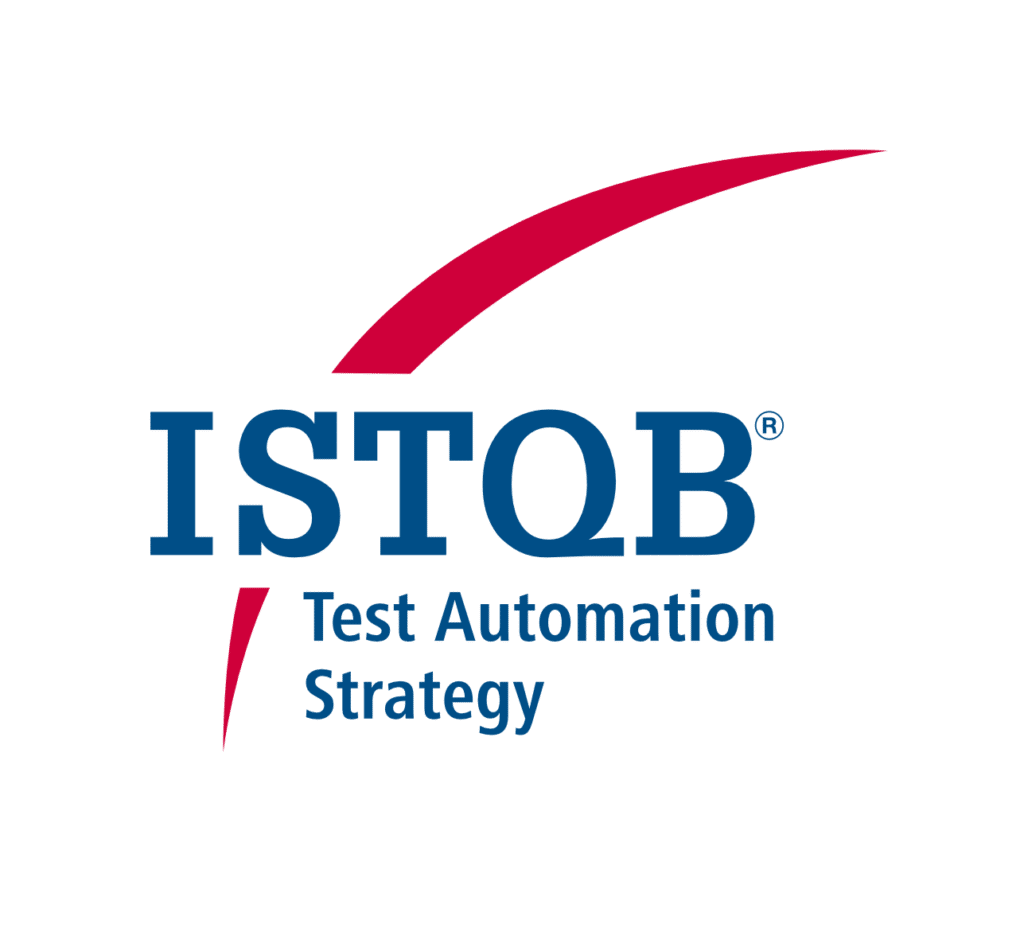Note
CT-TAS v1.0 is a newly released ISTQB® Certified Tester Test Automation Strategy Specialist certification.
Certified Tester Test Automation Strategy (CT-TAS)
Overview
The Certified Tester Test Automation Strategy Specialist qualification is aimed at anyone involved in software testing and test automation. The syllabus presents multiple factors that come into play when planning for test automation within an organization. The Test Automation Strategy syllabus addresses test automation needs beyond those that are technical tool implementation and integration challenges. A strategic view of test automation provides a vision of implementation across projects within an organization in a systematic and consistent manner that ultimately can demonstrate value to the organization.
Audience
The Test Automation Strategy Specialist qualification is aimed at anyone involved in software testing and test automation. This includes people in roles such as testers, test analysts, test automation engineers, test consultants, test architects, test managers, and software developers. This Specialist qualification is also appropriate for anyone who wants a basic understanding of test automation, such as project managers, quality managers, software development managers, business analysts, IT directors and management consultants.
To gain this certification, candidates must hold the Certified Tester Foundation Level v4.0 or previous versions of the Foundation Level certificate and have sufficient practical experience. Please contact an ISTQB® Member Board or Exam Provider to determine the specific practical experience criteria.
Content
ISTQB® Certified Tester Test Automation Strategy (CT-TAS)
Introduction and Objectives for Test Automation Strategy
Success Factors of a Test Automation Strategy
Test Automation Resources
Costs and Risks of Implementing a Test Automation Solution
Roles and Responsibilities within Test Automation
Preparing for Test Automation
Intergration Across Test Levels
Strategic Considerations in Different Software Development Lifecycle Models
Application and Viability of Test Automation
Organizational Deployment and Release Strategies for Test Automation
The Automation Solution Planning
Test Automation Deployment Strategies
Dependencies within The Test Environment
Test Automation Impact Analysis
Investment in Setting Up and Maintaining Test Automation
Test Automation Metrics
The Value of Test Automation on the Project and Organization Level
Decisions Made from Test Reports
Implementation and Improvement Strategies for Testing Automation
Transitioning Activities from Manual Testing to Continuous Testing
Test Automation Strategy Across the Organization
Exam Structure
- No. of Questions: 40
- Passing Score: 32
- Total Points: 49
- Exam Length (mins): 60 (+25% Non-Native Language)
Business Outcomes
- Understand factors from software and systems that influence the success of test automation
- Identify costs and risks of implementing a test automation solution
- Understand the roles and responsibilities of people who are contributing to test automation
- Plan for the integration of test automation across test levels
- Identify strategic considerations for test automation implementation in different software development lifecycle models
- Understand applicability and viability of test automation
- Plan test automation solutions that meet the organizational needs
- Understand test automation deployment strategies
- Learn which test automation metrics help drive decision-making
- Identify ways in which test automation brings value to the project and organization
- Identify test automation reporting requirements to address stakeholder needs
- Define transitioning activities from manual testing to test automation
- Define a test automation strategy that ensures projects share assets and methods to ensure consistent implementation across the organization
- Understand costs for setting up and maintaining test automation
More Information
Training is available from Accredited Training Providers (classroom, virtual, and e-learning). We highly recommend attending accredited training as it ensures that an ISTQB® Member Board has assessed the materials for relevance and consistency against the syllabus.
Self-study, using the syllabus and recommended reading material, is also an option when preparing for the exam.
Holders of this certification may choose to proceed to other Core, Agile, or Specialist stream certifications.

